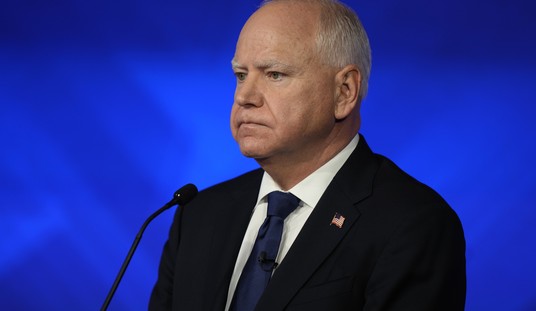"Why does Louisiana have the right to stop me from doing what I love to do?" asks Ursula Newell-Davis in my new video.
Newell-Davis has helped people. She's a social worker who's worked with kids with special needs for 20 years. She's really good at it.
"She helped teach me how to talk to people," says Kamal, who never had friends before.
His mother adds, "She explained to me things that I didn't understand about my kids."
Newell-Davis helped many families like hers. Her clients are ecstatic about her work.
Now she wants to help more kids by starting her own business focusing on "respite" work. "Respite" means acting as backup to a primary caregiver. They fill in for a few hours or days to give a parent a break.
"Someone that can go in and teach their child a different skill," Newell-Davis says.
She has a college degree, a master's degree and a social work license. But Louisiana bureaucrats won't let her do respite work unless she can prove "there is a need for an additional HCBS provider in the geographic location for which the application is submitted" and "the probability of serious, adverse consequences to recipients' ability to access health care if the provider is not allowed to be licensed."
What!? Why?
"Louisiana wants to limit how many agencies they have to regulate," says Newell-Davis. "That makes it easy for the state."
Easy for the state? Yes, that's the actual reason.
Anastasia Boden of the Pacific Legal Foundation is helping Newell-Davis sue Louisiana, trying to get the law declared unconstitutional.
"Louisiana gives you no clue about how to prove you're needed," says Boden. Even if they did, "That would be difficult for even the best entrepreneurs."
Recommended
I thought about my career and said, "I couldn't prove that I'm needed."
"The only way to find out is to open up your doors and try!" replies Boden.
But Newell-Davis isn't allowed to try.
She gave regulators what they demanded. She paid their $200 fee, rented office space and explained why her work is needed. She wrote many pages about rising youth crime and how respite care could help these kids.
But Louisiana said that wasn't good enough."
In fact, Louisiana turns down most applicants.
This is crazy. Special needs kids need more help, not less.
The government's excuse: "Regulating is a resource-intensive process." Rejecting applicants helps "limit the burden on regulators."
Streamlining the application process would be a better solution.
"Imagine if government argued that it didn't have enough money to administer driver's license exams," says Boden. "That's just not a legitimate excuse."
I tried to interview a regulator, but not one would answer our emails or calls.
So, a Stossel TV producer went to Baton Rouge.
As you see in my video, the government's offices are quite nice. I wish they spent less on buildings and more on serving people.
A security guard diligently called one health department person after another. It went to voicemail again and again.
Too busy rejecting applications? Sleeping? Who knows?
Later one sent us an email saying, "We'd be happy to work ... on providing information."
"Work on it?" Is providing information so hard? It must be. Weeks later, they still haven't told us anything.
Unfortunately, 39 states have similar laws. They're called "CON laws" because entrepreneurs must get "Certificates of Need" to open certain businesses. They must prove they're needed.
Some states demand it of moving companies, hospitals, ambulance services.
People in Kentucky wait longer to get to a hospital because Kentucky's CON law makes it hard to offer an ambulance service.
Louisiana is the only state that applies its CON law to respite care.
Sure enough, "Consumers in Louisiana are less satisfied with their care," says Boden. "Complaints go up year after year."
Why do these laws stay on the books?
Because established businesses don't like competition. They lobby legislators, and legislators dutifully protect them.
Consumers get screwed.
John Stossel is the author of "Give Me a Break: How I Exposed Hucksters, Cheats, and Scam Artists and Became the Scourge of the Liberal Media."
























Join the conversation as a VIP Member